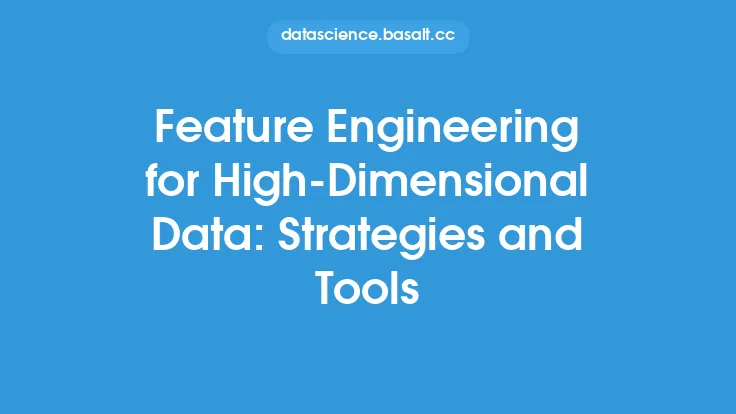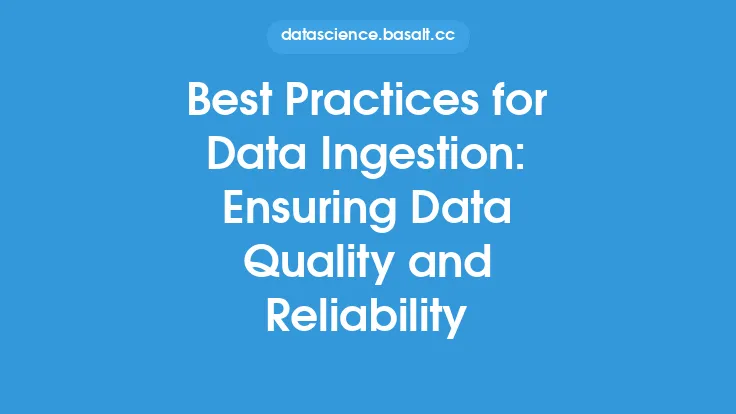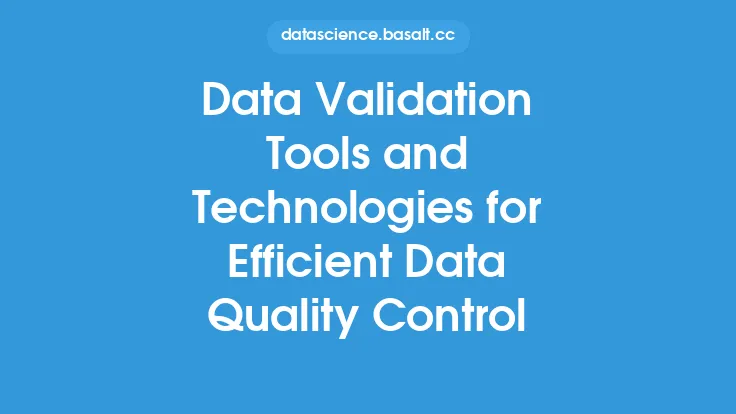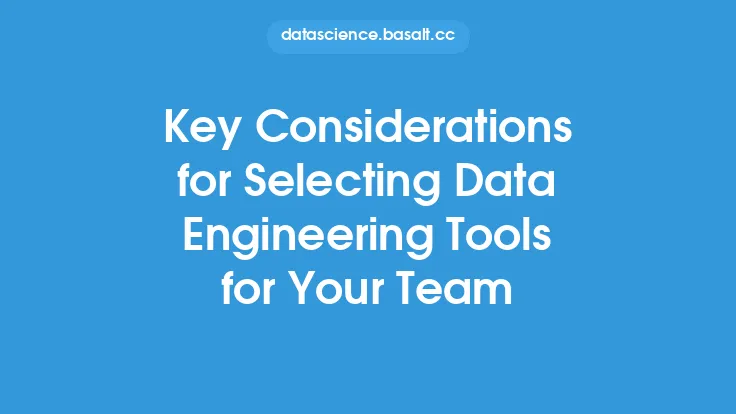Data engineering is a crucial aspect of any organization that relies on data to make informed decisions. The primary goal of data engineering is to ensure that data is accurate, reliable, and accessible to stakeholders. To achieve this, data engineers use a variety of tools to design, build, and maintain large-scale data systems. In this article, we will explore the top data engineering tools for improving data quality and reliability.
Introduction to Data Quality and Reliability
Data quality and reliability are critical components of any data engineering project. Data quality refers to the accuracy, completeness, and consistency of data, while reliability refers to the ability of a system to provide accurate and consistent results over time. To ensure data quality and reliability, data engineers use a variety of tools and techniques, including data validation, data cleansing, and data transformation. These tools help to identify and correct errors, inconsistencies, and inaccuracies in the data, ensuring that it is reliable and trustworthy.
Data Validation and Cleansing Tools
Data validation and cleansing are essential steps in ensuring data quality and reliability. Data validation involves checking data for errors, inconsistencies, and inaccuracies, while data cleansing involves correcting or removing errors and inconsistencies. Some popular data validation and cleansing tools include Apache Beam, Apache Spark, and Talend. These tools provide a range of features, including data profiling, data quality metrics, and data transformation, to help data engineers identify and correct errors in the data.
Data Transformation and Integration Tools
Data transformation and integration are critical components of any data engineering project. Data transformation involves converting data from one format to another, while data integration involves combining data from multiple sources into a single, unified view. Some popular data transformation and integration tools include Apache NiFi, Apache Kafka, and Informatica PowerCenter. These tools provide a range of features, including data mapping, data transformation, and data routing, to help data engineers transform and integrate data from multiple sources.
Data Storage and Management Tools
Data storage and management are essential components of any data engineering project. Data storage involves storing data in a secure and scalable manner, while data management involves ensuring that data is accurate, complete, and up-to-date. Some popular data storage and management tools include Apache Hadoop, Amazon S3, and Google Cloud Storage. These tools provide a range of features, including data compression, data encryption, and data replication, to help data engineers store and manage large volumes of data.
Data Monitoring and Alerting Tools
Data monitoring and alerting are critical components of any data engineering project. Data monitoring involves tracking data quality and reliability in real-time, while alerting involves notifying stakeholders of errors, inconsistencies, and inaccuracies in the data. Some popular data monitoring and alerting tools include Prometheus, Grafana, and New Relic. These tools provide a range of features, including data visualization, alerting, and notification, to help data engineers monitor and alert on data quality and reliability issues.
Data Security and Governance Tools
Data security and governance are essential components of any data engineering project. Data security involves protecting data from unauthorized access, while governance involves ensuring that data is managed and used in accordance with organizational policies and procedures. Some popular data security and governance tools include Apache Ranger, Apache Knox, and Collibra. These tools provide a range of features, including data encryption, access control, and data lineage, to help data engineers secure and govern data.
Best Practices for Improving Data Quality and Reliability
Improving data quality and reliability requires a combination of tools, techniques, and best practices. Some best practices for improving data quality and reliability include data validation, data cleansing, and data transformation. Data engineers should also use data monitoring and alerting tools to track data quality and reliability in real-time, and data security and governance tools to protect data from unauthorized access. Additionally, data engineers should use data storage and management tools to store and manage large volumes of data, and data transformation and integration tools to transform and integrate data from multiple sources.
Conclusion
In conclusion, data engineering is a critical aspect of any organization that relies on data to make informed decisions. To ensure data quality and reliability, data engineers use a variety of tools and techniques, including data validation, data cleansing, and data transformation. Some popular data engineering tools for improving data quality and reliability include Apache Beam, Apache Spark, Talend, Apache NiFi, Apache Kafka, Informatica PowerCenter, Apache Hadoop, Amazon S3, Google Cloud Storage, Prometheus, Grafana, New Relic, Apache Ranger, Apache Knox, and Collibra. By using these tools and following best practices, data engineers can ensure that data is accurate, reliable, and accessible to stakeholders, and that data quality and reliability are maintained over time.





